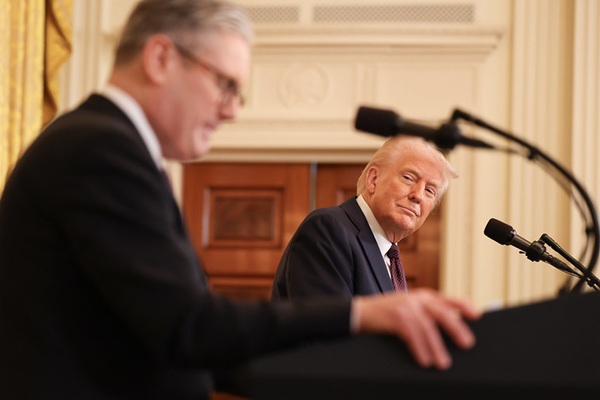1. German auto Benteler new Morocco plant
Benteler, the German automotive supplier, has officially commenced construction of its new manufacturing facility in Kenitra, Morocco, marking a significant milestone in the company’s global expansion strategy. The groundbreaking ceremony, held on June 24, was attended by key dignitaries including Morocco’s Minister of Industry and Trade, Ryad Mezzour, and Matthias Siemer, President of Benteler Automotive Components Europe.
Strategic Investment in Morocco’s Automotive Ecosystem
The new plant, located in Kenitra’s Atlantic Free Zone, represents a mid-double-digit million-euro investment—approximately MAD 400 million ($40 million). The facility will span a 17,000-square-meter building on a 50,000-square-meter plot, benefiting from direct highway access and proximity to the Tangier-Med Port, a major logistics hub.
Benteler’s decision to invest in Morocco underscores the country’s growing reputation as a competitive industrial and technological platform. “Morocco offers us relevant locational advantages: It’s a modern country with a strong automotive industry, plus the country’s geography and infrastructure also allow us to optimise logistics,” said Siemer.
Job Creation and Technological Innovation
The Kenitra plant is expected to generate over 300 direct jobs, with the potential for many more indirect roles throughout the local value chain. Benteler plans to implement comprehensive training programs to ensure employees are well-prepared to contribute to the company’s success.
Production at the facility is scheduled to begin in 2026, focusing on components such as front and rear bumpers, torsion beam rear axles, crash struts, and control arms for a major original equipment manufacturer.
Equipped with cutting-edge machinery—including a 3,200-ton cold stamping press, advanced welding systems, a cathodic dip coating system, and a 3D laser—the plant will also integrate Industry 4.0 technologies through Benteler’s SMART FACTORIES initiative. These innovations include Big Data analytics, a Smart Production Data Platform, and intelligent connectivity solutions for optimised operations.
Sustainability and Future Outlook
Benteler’s investment aligns with its sustainability goals, leveraging Morocco’s high proportion of renewable energy sources to power the facility. Minister Mezzour praised the initiative, stating, “This project further strengthens the momentum of our automotive ecosystem, supported by a skilled workforce and a competitive industrial offering.”
As Benteler prepares to launch operations in Kenitra, the move signals a broader trend of global automotive players recognising Morocco’s strategic value in manufacturing and logistics. The plant is poised to become a cornerstone of Benteler’s European operations and a model for smart, sustainable industrial development.
2. UK-US Trade Deal Comes into force slashing auto & aerospace tariffs

Global markets edged higher today as the landmark UK-US trade deal officially came into effect, delivering a significant boost to British manufacturers and signaling renewed transatlantic economic cooperation. The agreement, hailed as “historic” by Prime Minister Keir Starmer, introduces sweeping tariff reductions for the UK’s automotive and aerospace sectors—two of the country’s most vital and export-driven industries.
Under the new terms, tariffs on UK car exports to the United States have been slashed from a steep 27.5% to a more manageable 10%, while the aerospace sector sees the complete removal of 10% tariffs on key goods such as engines and aircraft parts. The deal is expected to save UK manufacturers hundreds of millions of pounds annually and safeguard thousands of jobs across the country.
A Win for British Industry
“This deal delivers for British businesses and protects UK jobs,” said Prime Minister Starmer. “From today, our world-class automotive and aerospace industries will see tariffs slashed, safeguarding key industries that are vital to our economy” [2](https://www.lse.co.uk/news/us-tariff-relief-for-uk-carmakers-and-aerospace-comes-into-force-h5od9tfsxis3qlc.html).
The automotive sector, which employs over 800,000 people in the UK, is poised to benefit significantly. The Society of Motor Manufacturers and Traders (SMMT) welcomed the move, calling it “a huge relief” for UK carmakers who rely heavily on the US market.
Meanwhile, aerospace giants such as Rolls-Royce and BAE Systems are expected to gain a competitive edge in the global market, thanks to the removal of tariffs that previously hindered exports to the US.
Market Reaction
Investors responded positively to the news, with the FTSE 100 rising 0.8% in early trading. Shares in major UK automotive and aerospace firms saw notable gains, reflecting optimism about increased export volumes and improved profit margins.
Analysts suggest the deal could also strengthen the pound and improve the UK’s trade balance with the US, its largest single-country trading partner.
Strategic Implications
The UK is currently the only country to have secured such a deal with the US, underscoring the strategic importance of the transatlantic relationship. Business and Trade Secretary Jonathan Reynolds emphasised that the agreement is part of the government’s broader “Plan for Change,” aimed at revitalising British industry and enhancing global competitiveness.
“This is a clear example of our plan in action: cutting costs for businesses, speeding up delivery of trade benefits, and helping UK industries thrive in a challenging global environment,” Reynolds said.
Looking Ahead
While the deal marks a major milestone, negotiations continue on other sectors, including steel, where tariffs remain at 25%. Talks are also underway regarding ethanol and beef imports, with mixed reactions from domestic producers.
3. PM visiting India to sign FTA

New Delhi/London, June 30, 2025 — UK Prime Minister Sir Keir Starmer is expected to visit India in July to formally sign the long-anticipated India–UK Free Trade Agreement (FTA), a landmark deal poised to reshape bilateral economic relations and deepen strategic ties between the two nations.
The agreement, which was successfully concluded in May 2025, marks a significant milestone in the Comprehensive Strategic Partnership between India and the United Kingdom. It is designed to boost trade, investment, innovation, and job creation across both economies.
According to officials, the FTA will eliminate tariffs on 99% of Indian exports to the UK, benefiting key sectors such as textiles, marine products, leather, gems and jewellery, and engineering goods. In return, British businesses are expected to gain improved access to India’s rapidly growing market, with tariff reductions estimated to save UK exporters up to £900 million annually.
The deal also includes a Double Contribution Convention, which exempts Indian professionals working in the UK from social security contributions for up to three years—a move hailed as a major win for skilled Indian workers and businesses alike.
Prime Minister Narendra Modi and Prime Minister Starmer had previously met on the sidelines of the G7 Summit and held a series of high-level discussions that accelerated the final stages of the agreement. The upcoming visit is expected to include ceremonial signings, business forums, and bilateral meetings aimed at expanding cooperation in areas such as technology, education, and climate action.
“This agreement is not just about goods and services—it’s about people, possibilities, and prosperity,” said India’s Commerce Minister Piyush Goyal. “It sets a new benchmark for equitable and ambitious trade between two large economies.”
The FTA is expected to come into effect following ratification by the British Parliament and approval by India’s Cabinet. Once implemented, it could significantly enhance bilateral trade volumes, which currently stand at over £36 billion annually.
Starmer’s visit will be his first official trip to India as Prime Minister and is seen as a symbolic gesture of the UK’s renewed commitment to strengthening ties with one of the world’s fastest-growing economies.
4. UK and Taiwan together ahead with trade partnership

British businesses and consumers are poised to gain from strengthened economic ties as UK Trade Minister Douglas Alexander concludes a high-profile visit to Taiwan, marking the 27th round of annual UK-Taiwan trade talks.
The visit, which coincides with the recent launch of the UK’s new Trade Strategy, underscores the government’s commitment to expanding global trade relationships and driving economic growth. During his time in Taipei, Minister Alexander co-chaired trade discussions with Taiwan’s Deputy Minister of Economic Affairs, Cynthia Kiang, and witnessed the signing of three new pillars under the UK-Taiwan Enhanced Trade Partnership (ETP): Investment, Digital Trade, and Energy and Net Zero.
These non-legally binding agreements aim to modernise trade frameworks, streamline digital transactions, and foster collaboration in green energy—sectors identified as key to both nations’ economic futures. The ETP builds on a trade relationship that reached a record £9.3 billion in 2024.
“Britain is open for business,” said Minister Alexander. “These new pillars will help us boost trade in some of our growth-driving sectors, delivering economic growth and helping put more money in people’s pockets as part of the Plan for Change.”
The visit also highlighted successful digital trade pilots involving UK companies such as Clas-SIC Wafer Fab and Skene Whiskey, showcasing how digital solutions can replace paper-based systems to enhance efficiency and reduce costs.
Taiwan, the world’s 22nd largest economy, is a global leader in digital technology and advanced manufacturing—areas that align closely with the UK’s strategic strengths. The enhanced partnership is expected to open new doors for UK exporters and investors, while offering Taiwanese firms greater access to British innovation and services.
As the UK navigates a rapidly evolving global trade landscape, this visit signals a proactive approach to securing economic resilience and prosperity through agile, targeted partnerships.







